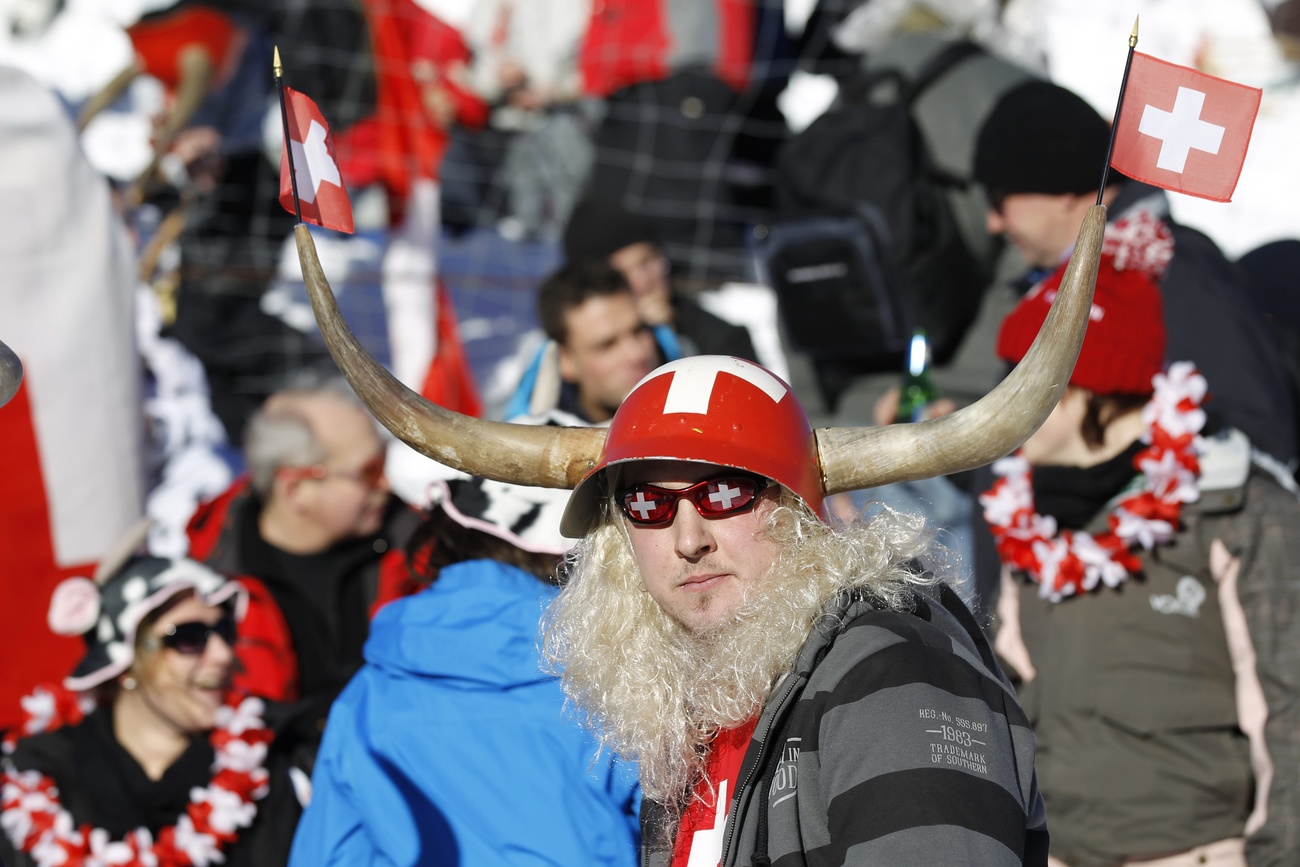
Rescue teams had hands full at Lauberhorn ski race

From broken bones to heart attacks, the rescue teams had a busy weekend at the Ski World Cup in Wengen, which attracted a record 80,000 fans.
+Get the most important news from Switzerland in your inbox
The crowds cheered on the participants and celebrated the Swiss victories of Marco Odermatt and Franjo von Allmen, Swiss public broadcaster, SRF reported. Accompanying the celebrations on the race course, in the finish area and in the après-ski bar were numerous accidents, falls and other medical emergencies.
From Friday to Sunday, the rescue teams in Wengen were deployed 140 times, emergency doctor and head race doctor Markus Sinsel told SRF. “There were falls, broken bones, but also other medical emergencies.” These include heart attacks, for example. On the downhill race day alone, there were 35 moderate and 52 minor injuries or illnesses. “Saturday was dominated by accidents involving broken bones, knee ligament injuries and cuts,” Sinsel said.
+ Swiss ski rescuers attended 14,000 accidents last winter
Sinsel and his team are responsible for the medical care and rescue of the injured athletes during the races on the Lauberhorn. On the other hand, they also look after injured, sick and injured ski fans before, during and after the races.
Traditionally, a lot of alcohol is consumed at a ski festival. Often the first beer is toasted on the train early in the morning on the way to the event. At the same time, spectators are out and about on skis, snowboards, sledges and on foot – in snow, ice and slippery conditions. This can quickly lead to falls and accidents. “Many of our patients are not sober,” Sinsel points out.
+ Swiss slope accidents cost CHF600 million annually
More than 50 people were on permanent medical duty during the race weekend in Wengen. These included the emergency doctors and paramedics.
“As there were even more spectators on site this year than last year, there were certain areas where we reached the limits of our capacity at certain times,” Sinsel said. The supply concept will therefore be reviewed for next year and adjustments will be made where necessary.
Translated from German by DeepL/ts
This news story has been written and carefully fact-checked by an external editorial team. At SWI swissinfo.ch we select the most relevant news for an international audience and use automatic translation tools such as DeepL to translate it into English. Providing you with automatically translated news gives us the time to write more in-depth articles.
If you want to know more about how we work, have a look here, if you want to learn more about how we use technology, click here, and if you have feedback on this news story please write to english@swissinfo.ch.

In compliance with the JTI standards
More: SWI swissinfo.ch certified by the Journalism Trust Initiative




























You can find an overview of ongoing debates with our journalists here . Please join us!
If you want to start a conversation about a topic raised in this article or want to report factual errors, email us at english@swissinfo.ch.